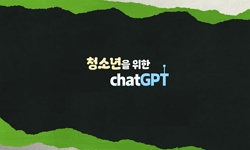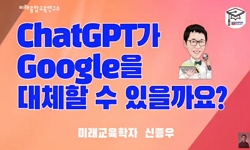This study was conducted with the aim of providing practical insights that can help in planning and designing more learner-tailored support when applying ChatGPT in university education by understanding university students' perceptions of the usefulne...
http://chineseinput.net/에서 pinyin(병음)방식으로 중국어를 변환할 수 있습니다.
변환된 중국어를 복사하여 사용하시면 됩니다.
- 中文 을 입력하시려면 zhongwen을 입력하시고 space를누르시면됩니다.
- 北京 을 입력하시려면 beijing을 입력하시고 space를 누르시면 됩니다.
ChatGPT의 유용성과 제한점에 대한 대학생의 인식에 관한 연구 = The Study on University Students' Perception of the Usefulness and Limitations of ChatGPT
한글로보기https://www.riss.kr/link?id=A109235855
- 저자
- 발행기관
- 학술지명
- 권호사항
-
발행연도
2024
-
작성언어
Korean
- 주제어
-
자료형태
학술저널
-
수록면
-
- 제공처
- ※ 대학의 dCollection(지식정보 디지털 유통체계)을 통하여 작성된 목록정보입니다.
-
0
상세조회 -
0
다운로드
부가정보
다국어 초록 (Multilingual Abstract)
This study was conducted with the aim of providing practical insights that can help in planning and designing more learner-tailored support when applying ChatGPT in university education by understanding university students' perceptions of the usefulness and limitations of ChatGPT. For this study, a survey was conducted targeting students enrolled in the S liberal arts course conducted as a cyber lecture at C University in the first semester of the 2023 academic year, and students enrolled in the K teacher training course at S University. Descriptive statistics, frequency analysis, reliability analysis, t-tests, and one-way ANOVA were conducted on the valid data from 610 respondents. The main findings are as follows. First, regarding the perception of ChatGPT, overall, the usefulness of ChatGPT was relatively positively perceived, while the limitations of ChatGPT were relatively concerning. Second, gender differences in perception showed that women had a more positive perception of the 'use of translation functions' and 'assignment analysis and feedback' within usefulness, whereas men had greater concerns about 'plagiarism and academic dishonesty' within limitations. Third, there were no significant differences in perception by grade level, but differences were found by major field in the 'use of translation functions' and 'basic data analysis and generation' within usefulness. Students from the humanities and social sciences and engineering fields perceived ChatGPT as more useful than those from the arts and physical education fields. Within limitations, students from the arts and physical education fields had greater concerns about 'learning gaps due to the ability to use ChatGPT' than those from the engineering fields. In conclusion, since most university students perceive the use of ChatGPT in learning as useful, it is necessary to encourage the active use of ChatGPT in classes and assignments. Additionally, to alleviate concerns about the limitations of ChatGPT, continuous education to prevent plagiarism and academic dishonesty should be conducted to raise awareness of plagiarism.
동일학술지(권/호) 다른 논문
-
- 淸州大學校 學術硏究所
- 김미선
- 2024
-
- 淸州大學校 學術硏究所
- 황경수
- 2024
-
- 淸州大學校 學術硏究所
- 김수정
- 2024
-
- 淸州大學校 學術硏究所
- 김수정
- 2024




 RISS
RISS






